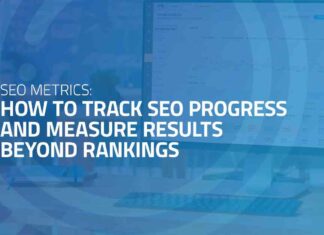SEO strategies need to be tailored to specific industries in order to be effective. One-size-fits-all approaches simply won’t cut it when it comes to optimizing for search engines. Different industries have different needs, search conditions, and target audiences, which means that SEO professionals must adapt their strategies accordingly.
For example, B2B and B2C companies require different approaches when it comes to SEO. B2B keywords typically have lower search volumes and are more complex than B2C keywords. This means that content creation for B2B companies needs to be of high quality and expert-driven. On the other hand, B2C topics are more straightforward and require a focus on everyday consumer interests.
When it comes to eCommerce, SEO is crucial for driving organic traffic and generating sales. Technical optimization, keyword research, image optimization, and link building are all essential components of a successful eCommerce SEO strategy. Additionally, keeping track of keyword-related issues and preventing keyword cannibalization and duplicate content is key for maintaining a strong online presence.
In the healthcare sector, SEO plays a critical role in helping doctors, pharmacies, and other healthcare facilities connect with patients. Local SEO is particularly important for healthcare websites, as many patients search for local providers online. Establishing trust and authority through high-quality content and a clear personal brand is essential for healthcare professionals looking to improve their online visibility.
Similarly, the financial sector requires a specialized approach to SEO due to the complexity of financial products and terminology. Good keyword research and understanding of the target audience’s search needs are crucial for success in financial SEO. Outsourcing content creation to experienced editorial teams can help ensure that the content is accurate and informative.
Measuring the success of an SEO strategy is essential for demonstrating ROI and justifying budget allocations. Tracking SEO performance using tools like Google Analytics can provide valuable insights into organic and paid traffic generation. Individual tracking and targeting can help determine how search engine users contribute to conversions and sales on websites. Additionally, using SEO tools with individual KPI features can help calculate the value of SEO traffic in terms of potential Google Ads revenue.
In conclusion, industry-specific SEO strategies are essential for optimizing websites and driving organic traffic. By understanding the unique needs of each industry and tailoring SEO strategies accordingly, businesses can improve their online visibility and reach their target audiences more effectively. It’s important to stay up-to-date with the latest SEO trends and best practices to ensure that your website remains competitive in the ever-changing digital landscape.














![SEO Experts Discuss Latest Trends and Strategies in Search Optimization [Podcast] news-13092024-191734](https://guestpostingforum.com/wp-content/uploads/2024/09/news-13092024-191734-100x70.jpg)








